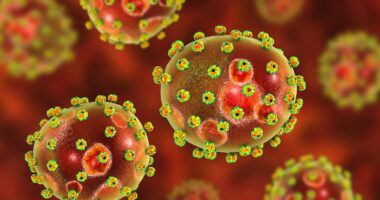Scientists have discovered a potential link between two specific strains of E.coli bacteria and certain types of cancer, suggesting the possibility of a vaccine to reduce cancer risk. Researchers at the Wellcome Sanger Institute at the University of Helsinki found that these two strains could be partially responsible for higher rates of specific cancers such as colorectal, bladder and prostate.
This breakthrough could lead to the development of a vaccine targeting these specific bacteria, effectively creating a vaccine reducing the risk of developing these cancers. The study, published in Lancet Microbe, noted that these strains are more common in industrialised countries like the UK.
Unlike other E.coli strains, these two do not cause food poisoning symptoms. Instead they cause urinary tract infections and bloodstream infections.
The researchers were inspired to investigate the potential links to cancer after a 2020 study revealed that these two strains produce a substance called colibactin. Colibactin has been identified as a risk factor for colorectal cancer as it causes DNA breaks in human cells.
The new study found evidence of colibactin damage in tumour samples from colorectal cancer patients. It also uncovered preliminary evidence that it plays a role in the development of cancers in the urinary tract, where E.coli infections are typically found.
Dr Trevor Lawley, from the Wellcome Sanger Institute, commented on the potential health implications of their findings. He said: “In the future, it could be possible to develop therapeutic probiotics that help to displace unwanted bacterial strains, such as the ones that release colibactin.
“Understanding more about the interactions between E.coli and cancer risk highlights the impact our microbiome has on our health and is a crucial avenue to explore if we want to work with our bodies to help combat certain conditions.”
The researchers further explained that, in theory, targeting these specific harmful E.coli strains through vaccination or probiotic interventions might reduce cancer risks.
Yet, he emphasised the need for expansive research to confirm colibactin’s role in cancer. The team also noted the benefits of addressing these two particular E.coli strains concerning UTIs and bloodstream infections, given their prevalence in developed nations and the unique marker of colibactin production – opening doors for targeted approaches.
Professor Jukka Corander, senior author from the Wellcome Sanger Institute, University of Oslo, and the University of Helsinki, commented: “Vaccines or other interventions that target these E.coli strains could offer huge public health benefits.
Such as reducing the burden of infections and lessening the need for antibiotics to treat these, as well as reducing the risk of cancers that could be linked to the effects of colibactin exposure.”







